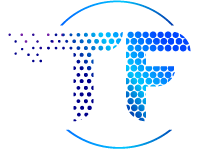We’ve all seen them. The ubiquitous smiley face, with a colon for eyes, and the left parenthesis as a smile 🙂
It’s called an emoticon; a combination of the words emotion and icon. They are used everywhere in our virtual worlds, conveying gestures and moods that can’t normally be expressed in type.
The most common emoticon is, of course, the smiley face, but they are dozens more – each used to convey something a little different.
Take the smiley face for instance. Adding it to the end of the sentence can change the tone, usually for the better.
You never pick up the phone.
or
You never pick up the phone. 🙂
The hostile statement suddenly becomes a little more lighthearted with the emoticon at the end.
Emoticons have become an important part of our online conversations, and are sometimes the subject to first impressions. People who dabble in online dating and communicate with others whom they haven’t met use emoticons to prevent misinterpretation. Emoticons are, in a sense, the online stand-ins for facial expressions and verbal inflections.
Here are the few of the most common emoticons and what they represent:
- 🙁 frown
- 😉 wink
- :(““ crying
- >:) mischevious grin
- :-/ smirk or confused
- 😛 smiling and sticking out your tongue
- 😀 laughing hard
- >:-\ mad
Internet acronyms are also seen as frequently as emoticons and are a big part of Internet lingo. Here are the acronyms used most often:
- LOL laughing out loud
- ROTFL rolling on the floor laughing
- BFN bye for now
- TTYL talk to you later
- IDK i don’t know
- LMK let me know
- IMO in my opinion
- IMHO in my humble opinion
- IAC in any case
- OTOH on the other hand
- FWIW for what it’s worth
- HTH hope that helps
We can’t talk about Internet communication without referencing Apple and all of their i-products. From them, iSlang was born. According to the Urban Dictionary, iSlang is an word, product, or idea that is meant to mimic Apple’s use of the lowercase “i” in front of names. For example:
“Both my iPod and iPhone are full of downloads from iTunes. Talk about iOverload!”
Internet lingo is always growing and evolving. Just as you get used to one set of emoticons, acronyms, and iSlang – new versions will appear. But don’t worry if you feel out of the lingo loop sometimes. There are millions of people just like you who are still getting used to this thing called the Internet.


Youre so cool! I dont suppose Ive read anything like this prior to. So nice to get somebody with some original thoughts on this topic. realy thank you for starting this up. this website is something that is required on the web, a person with a small originality. valuable job for bringing some thing new to the web!
Great article. thanks for the info..